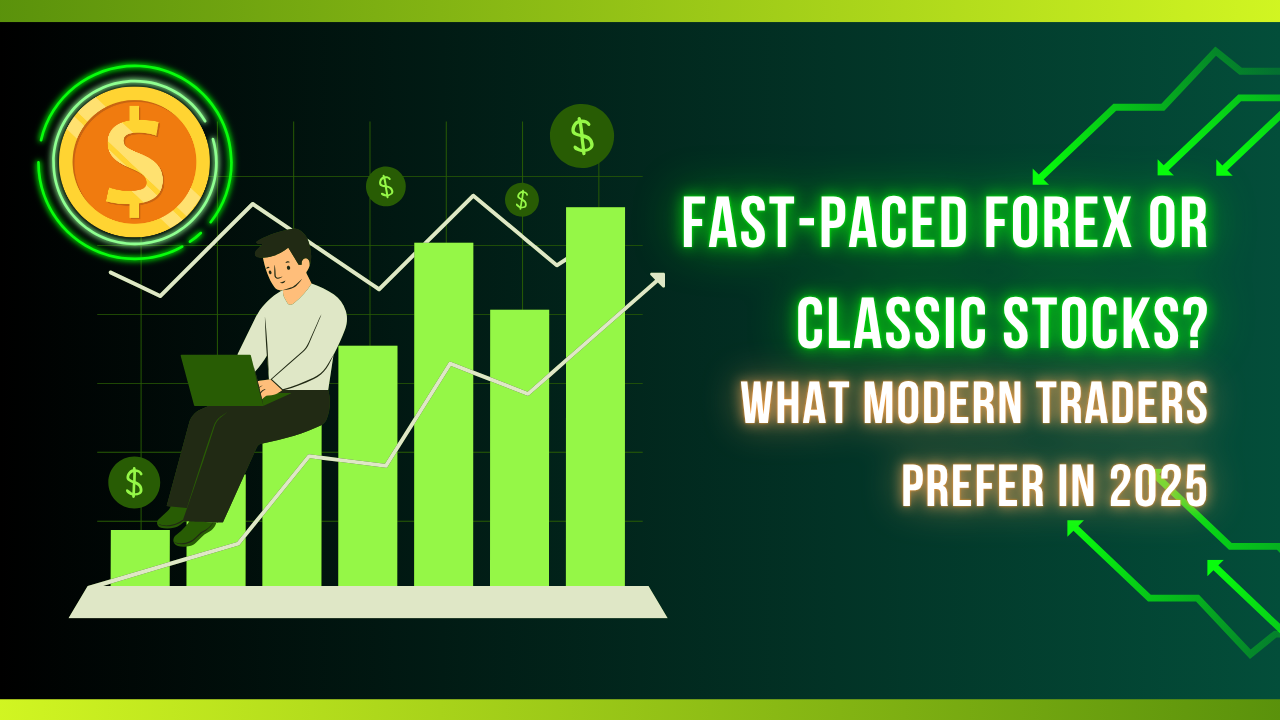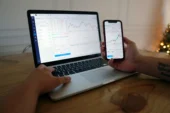In 2025, the financial sector is not resting on its laurels. It’s so active and fast that even professional traders from ten years ago would have been startled.
Quick setup. Instant analytics. These deals are carried out in just a few milliseconds.
What everyone is looking for: control. Now, traders examine current trends and trade in ways that suit them, rather than following the suggestions of a previous generation.
They require instant outcomes and results. Should we be careful about saving every point of difference?
Today, you can trade crypto, forex, stocks, and ETFs more freely than before, since the platforms are available globally. No brokers. No delays. No boundaries. At the same time, moving too fast can lead to dangers.
When everyone is in full motion, who decides exactly where to go? Is racing at full speed leading people to act wisely, or is it only making them move erratically?
The Forex Rush: Open All Night, No Sleep, Big Moves
You don’t have to wait for other markets to open; the Forex market operates 24/7.
The service operates daily, from Monday through Friday, with trains traveling between Sydney, Tokyo, London, and New York.
That constant beat you hear? It’s attractive for those who want to trade on excitement. They respond when financial news breaks, even if they’re in class or taking a rest during their workday.
Why? A few reasons:
- Tight spreads mean cheaper trades.
- High leverage (up to 1:500 with some brokers) means small capital can yield big returns. But one wrong move, and your account balance can vanish.
- Macro news moves the market fast. A central bank rate hike, geopolitical shock, or unexpected jobs data? Currencies can spike in minutes.
Stocks: Slow Burn or Solid Game Plan?
There are plenty of adventures that don’t depend on speed. Many traders still believe that having a detailed strategy is more important than the speed at which they trade.
Stocks may not be as hot as they were before, but they remain an important part of any portfolio. You are not seeing the seconds passing one by one on your TV.
You are studying balance sheets, earnings statements, and leadership communications. It involves playing a long-term game.
And for many? That’s a relief.
- Market hours are set from 9:30 a.m. to 4:00 p.m., Monday through Friday: no overnight shocks, no 3 AM panic trades.
- Dividends? They still matter. Reliable income, especially when paired with blue-chip stability.
- ETFs offer diversification, while options and tech stocks add strategy and spice to the mix.
This isn’t about quick flips. It’s about steady growth, smart moves, and letting time do the heavy lifting. For plenty of investors, that’s more than enough.
Who’s Trading What in 2025?
Traders in 2025 focus on both who they are and the strategies they use. Because Gen Z has grown up with the internet, they are quickly adopting Forex thanks to apps that can help and TikTok videos explaining candlestick patterns.
Many open their first account through apps like MetaTrader 4, Octa trading broker, or Exness, chasing volatility and leveraging flexibility. Millennials? They’re adapting to life in both places.
Some build a portfolio of long-term investments, such as stocks or ETFs, but they also take advantage of quick opportunities with Forex or crypto for a boost or some extra cash on the side.
Here’s how the landscape looks:
|
Group |
Primary Focus |
Common Platforms |
Trading Style |
|
Gen Z |
Forex, Crypto |
MetaTrader, Exness, OctaFX, TradingView |
Fast, mobile-first, influenced by social media |
|
Millennials |
Stocks + Side Forex/Crypto |
Robinhood, MetaTrader, TradingView |
Balanced, strategic, income-focused |
Key Differences That Matter
Most guides primarily focus on concepts, including indicators, annual returns, and the composition of the market.
Of course, real traders want to ask different questions.
How quickly can I access and exit a website? Will $100 be enough to get started, or do I need to invest $5,000? Do I want to stare at a screen for eight hours? Or check your accounts every seven days.
For certain people, Forex brings excitement and speed; for others, the stock market feels more likely to offer stability. They aren’t philosophical theories, but things everyone faces in their own lives.
They play a role in our normal daily habits, including when we wake up and how much stress we can handle. There is more to choosing than just the returns you get.
It’s all about how a pet fits into your life, its personality, and how much influence you have over it.
What Are You Built For?
The way the market operates remains the same, but your strategy must be unique. Is it your goal to find work where you must make rapid decisions under pressure?
Or is your thinking clearer when you have space and time spread out over a period of many years?
We aren’t looking to find the better option when it comes to markets.
You’ll need to look for a language that works with the way you live, how much you can handle mentally, and what you’re trying to achieve.
Certain traders are drawn to the exciting movement happening all day.
Still, some books need the time and space that a slow flow of events offers.
What counts is that you’re true to your strengths, boundaries, and what you can truly endure.




 Tags:
Tags:










